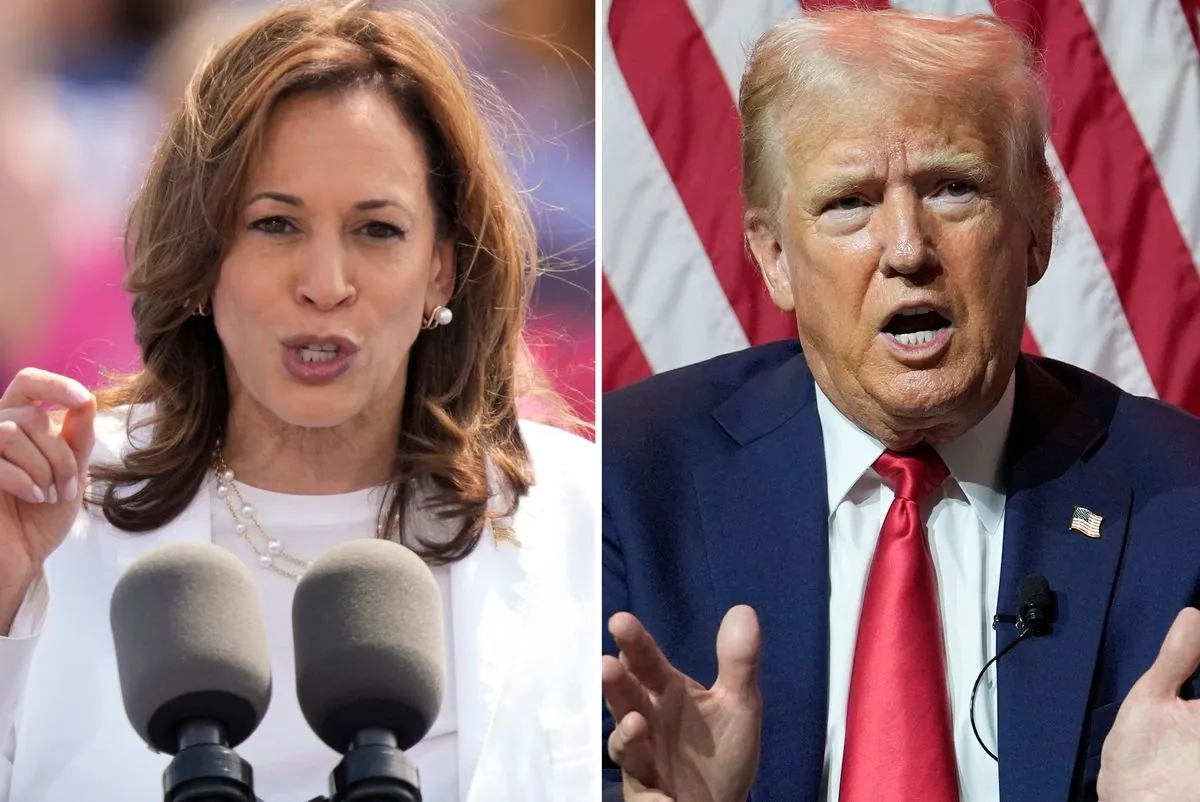Trump's Personal Attacks on Harris Persist Despite Campaign Advice
Former President Trump struggles to refrain from attacking Kamala Harris, despite advisors urging focus on policy. Recent conventions show Harris gaining momentum in the presidential race.

In the lead-up to the 2024 US Presidential Election, Donald Trump faces challenges in adhering to his campaign team's advice regarding his approach towards his opponent, Kamala Harris. The former president, now 78 years old, has reportedly expressed difficulty in refraining from personal attacks against the 59-year-old Harris, citing strong feelings of animosity.
Campaign strategists have urged Trump to concentrate on policy matters such as the economy and immigration, as data indicates that personal attacks on Harris are unfavorable among swing voters. However, Trump has reportedly confided in associates about his struggle to follow this guidance.

Recent weeks have seen Trump face criticism for comments perceived as racially charged, targeting Harris's dual heritage. These remarks, along with his deliberate mispronunciation of her name, echo his tactics from the 2016 election, where he employed nicknames for his opponents.
Steve Wynn, a prominent GOP donor and casino magnate, has shared private polling data with Trump, emphasizing that independent voters prefer candidates who focus on substantive policy issues. This information is particularly crucial as the race between Harris and Trump remains close, with independent voters in swing states likely to play a decisive role.
The recent Democratic National Convention in Chicago, a tradition dating back to 1832, saw former President Barack Obama and former First Lady Michelle Obama deliver pointed criticisms of Trump. In response, Trump defended his campaign behavior, suggesting that their remarks justified his own approach.
"Do I still have to stick to policy?"
Despite efforts by Trump's campaign to counter the Democratic convention with policy-focused events, such as an immigration-themed visit to the US-Mexico border, insiders report that these initiatives were often overshadowed by Trump's impromptu remarks at rallies and his social media posts on platforms like Truth Social.
The Democratic convention, featuring Harris's acceptance speech, garnered higher television ratings than the Republican convention held in Milwaukee last month. Nielsen data showed an average of 21.8 million viewers for the Democratic event, surpassing the Republican convention's 19.1 million by 15%.
As Harris and her running mate, Minnesota Governor Tim Walz, prepare for a bus tour through Georgia, a state that has recently shifted from reliably Republican to a potential swing state, Trump's campaign team anticipates a temporary polling boost for Harris. However, they caution against overestimating the significance of post-convention poll numbers, citing historical examples such as Michael Dukakis's lead over George H.W. Bush in 1988 and Hillary Clinton's advantage over Trump in 2016, both of which did not translate to electoral victories.
The ongoing challenge for Trump's campaign remains balancing the candidate's personal style with strategic messaging aimed at securing crucial swing state voters in what promises to be a closely watched 60th quadrennial presidential election.


































